The Sinister Forces Behind Boris Johnson’s Brexit Coup
The newly minted U.K. prime minister is playing a risky game as he blows up his own majority and tries to impede Parliament from doing its job.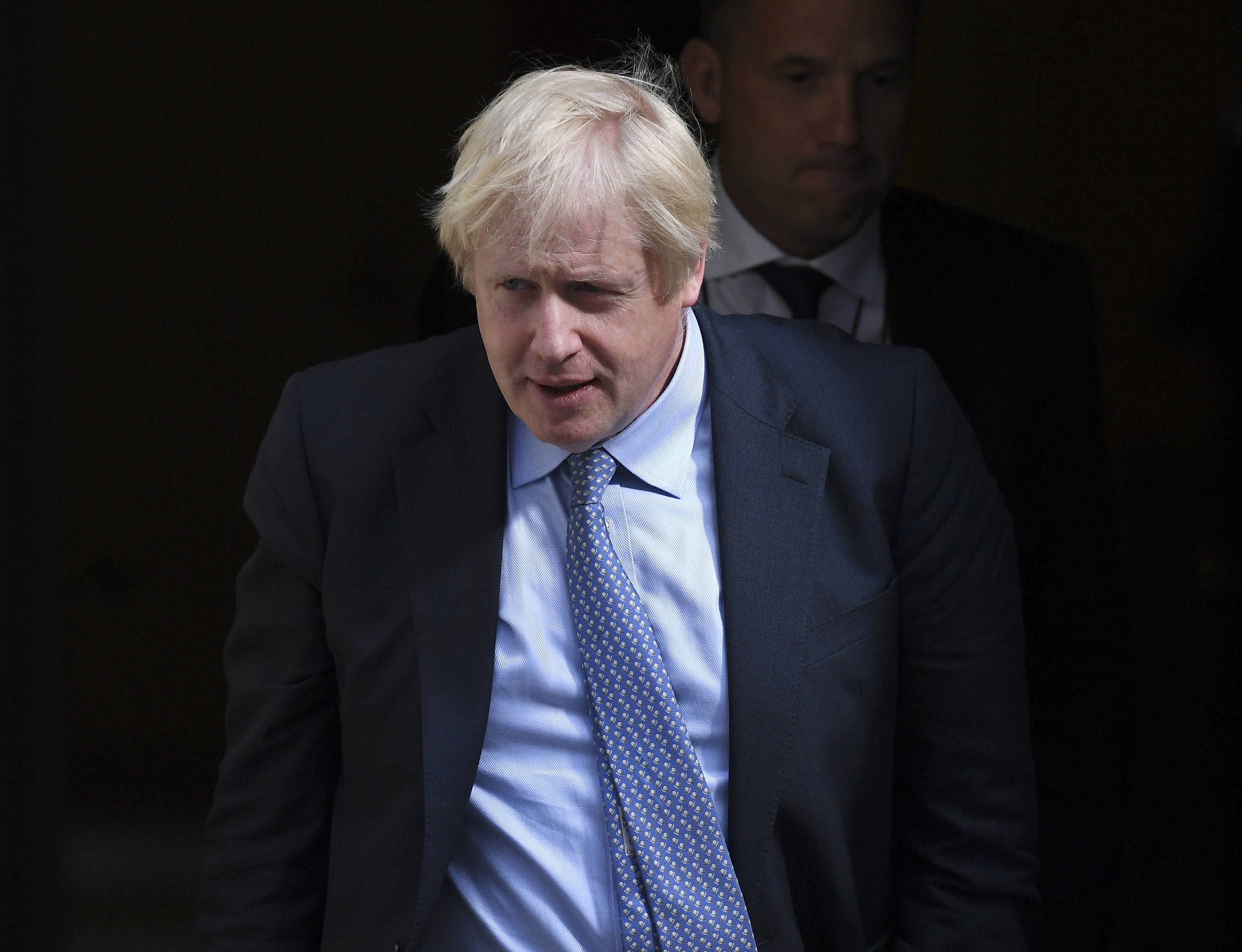 Britain Prime Minister Boris Johnson is trying to convince everyone in the U.K. that they should be ready for a no-deal Brexit on Oct. 31. (Alberto Pezzali / AP)
Britain Prime Minister Boris Johnson is trying to convince everyone in the U.K. that they should be ready for a no-deal Brexit on Oct. 31. (Alberto Pezzali / AP)
Natasha Hakimi Zapata reports for Truthdig from London.
The last thing I want to do today is write about Brexit again, partly because I still can’t get over the nausea of the dizzying speed of events in British politics or the unease that’s taken hold since Boris Johnson was chosen as prime minister of the United Kingdom. (I say chosen because a bunch of Tory members deciding who the nation’s leader will be hardly can be considered an election.)
Since former Prime Minister Theresa May’s astonishing three-vote-failure to pass her negotiated deal for leaving the European Union through Parliament, much ado about nothing has taken place in the House of Commons. Johnson, the notoriously power-hungry former London mayor who led the “Leave” campaign prior to the 2016 EU referendum, became prime minister in July despite no general election being held. This is due to rules that allow a new leader to be selected solely by the Tory members of Parliament and the party members, as long as the party in question continues to hold a majority of seats in Parliament (even if, like the Conservatives, it’s a slim majority of one). It’s also worth noting the makeup of the Tory Party membership, which totals about 160,000 people in a country with a population of about 67.6 million, are primarily white and middle class, as well as “more right-wing than the population as a whole,” according to the BBC. This means minorities and working-class Brits are sorely underrepresented in the ruling party. Add to these facts that 70% of Tory MPs are male, and it becomes clear the Conservatives are not concerned with any form of gender, class or ethnic representation that would reflect the wider U.K. population.
There is plenty to say about the U.K.’s new American-born leader, but perhaps most of it can be summed up by John Oliver’s segment on the duplicitousness behind the clownish, salt-of-the-earth image the elite-raised Johnson has cultivated throughout his careers as both a journalist and politician.
In the six weeks since Johnson has taken power, the Leave campaigner has tried to convince those in the U.K. they should prepare for a so-called no-deal Brexit on Oct. 31, while simultaneously maintaining the threat is mainly a negotiating tactic to try to obtain a better deal than May’s from the EU.
What on Earth Is a No-Deal Brexit?
In essence, a no-deal Brexit means exactly what it sounds like: the U.K. would leave the EU on Oct. 31, the deadline set forth by the EU when it gave its second extension to the U.K in April after May’s failure to pass her deal, without any agreements between London and Brussels. While on the surface this type of divorce may not seem too catastrophic, there have been plenty of studies and warnings to the contrary.
In a Guardian piece, the organization U.K. in a Changing Europe sought to outline the impacts of a no-deal, pointing out that while in the short-term the European bloc has taken temporary measures to stem some of the chaos that could arise, especially when it comes to EU citizen rights and travel, the politically fraught border between Northern Ireland and the Republic of Ireland remains a huge cause for concern.
Many of the worse possible consequences–such as severe disruption to road and air transport links–are not on the table in the short term because the EU has unilaterally put into place temporary workarounds. Would these–some of which expire as soon as the end of December, just two months into no deal – survive a political confrontation over the U.K.’s “divorce bill”?
Similarly, while there is no prospect of EU citizens in the U.K. becoming irregular migrants overnight, the government’s recent incoherence on what no deal means for freedom of movement has made many feel, understandably, insecure–and it is still unclear how employers, landlords and public services will be expected to apply any new rules. The position for Britons in Europe is even more complex and uncertain.
… But perhaps the biggest and most dangerous unknown is what happens on the island of Ireland. The U.K. government has said it will not apply checks and tariffs at the Irish border–a stance which is at odds with its commitments under, inter alia, WTO rules. The EU, however, has made it clear it intends to apply the rules, though whether all checks will be imposed from day one is less obvious. Both sides are likely to blame the other, with unforeseeable political and economic consequences.
But as U.K. in a Changing Europe points out, one of the biggest misconceptions surrounding a no-deal is that it would somehow represent an end to the relationship between the 27-member state bloc and the United Kingdom. Negotiations between the two would take years to sort out, and would be done, in the case of a no deal, in a much more chaotic context given that arrangements will not have been made prior to the U.K.’s departure.
As Labour leader Jeremy Corbyn highlighted on Wednesday in PMQs—a session in which parliamentarians ask the prime minister questions on any range of issues—one other significant outcome of crashing out of the EU without any agreement is the possibility of fresh food and medical supply shortages, as outlined in leaks from Johnson’s own government. The “Operation Yellow Hammer” papers, as the leaked documents are titled, also indicate the government expects massive delays at U.K. ports and a “hard border” in Ireland, which some believe would violate the Good Friday Agreement in which long-sought-after peace was established in Ireland. When Corbyn asked the prime minister repeatedly on Wednesday whether he was willing to release the Yellow Hammer documents, Johnson mostly dodged the question and railed on about not wanting to give away his EU negotiating tactics.
European officials, however, have repeatedly stated Johnson and his historically right-wing cabinet have not proposed a single alternative to the Irish backstop, the sticking point in the deal negotiated by Johnson’s predecessor May.
What Is Parliament Doing to Quash Johnson’s Mess?
While Parliament is currently in session in Westminster, Johnson’s recent request to Queen Elizabeth II for a prorogation, which would shut down Parliament for 23 working days until mid-October, was approved by the monarch. MPs from all parties have declared the move undemocratic as it would keep democratically elected leaders from voting on any legislation in the crucial crunch time before the Oct. 31 deadline. British author Laurie Penny summed this move up best in a tweet riffing off the Leave campaign slogan.
Three years ago: take back control! The people have spoken! If you oppose Brexit, you hate democracy!
Now: unelected Prime Minister gets hereditary monarch to suspend parliament in order to force through a disastrous no-deal Brexit that nobody voted for. #StopTheCoup #brexit
— Laurie Penny (@PennyRed) August 28, 2019
On Tuesday, MPs from Labour, Liberal Democrats, the Scottish National Party, Wales’ Plaid Cymru and even some “rebel” Tories sought to begin proceedings to quickly pass legislation that would keep Johnson from forcing through a no-deal. In anticipation of a humiliating defeat, Johnson threatened to withdraw the whip from any member of his party who voted in favor of the legislation, a move that would basically kick them out of the Conservative Party and not allow them to run as a Tory in an upcoming election. As threats were thrown around, one Tory decided to leave in a theatrical display. Phillip Lee walked over to the opposite side of the chamber in the middle of a speech by the PM and defected to the Liberal Democrats, effectively putting an end to Johnson’s one-person majority.
The moment defecting Tory MP Phillip Lee takes his seat with the Liberal Democrats, leaving Boris Johnson’s government with no working majority
Live updates: https://t.co/y5cguYUOfs pic.twitter.com/3RWlVJOPKo
— BBC Politics (@BBCPolitics) September 3, 2019
By Tuesday evening, 21 other Tories, including Phillip Hammond, who was Theresa May’s Lord Chancellor, and the grandson of Winston Churchill, Nicholas Soames, were all kicked out of the party after helping the opposition parties impart a devastating blow on Johnson’s no-deal plans. The decision was seen as especially hypocritical given that Johnson and many members of his cabinet were deemed “rebels” themselves by May’s government for repeatedly voting against her deal.
In other words, Johnson blew up his own party on one of his first few days as prime minister in the House of Commons, a move that, as Corbyn described it, left him with “no mandate, no morals and, as of today, no majority.” The fledgling prime minister then said he would call a general election under the Fixed-Term Parliaments Act, which would require a two-thirds majority to get through parliament. Corbyn, however, has insisted Labour would not vote in favor of a snap election until a bill was passed that would ensure Johnson could not force the U.K. out of the EU on Oct. 31 without a deal. On Wednesday, parliamentarians met for another marathon of debates centering mostly on Brexit as the clock ticked toward both the forced suspension of parliament, which is set to begin from Sept. 9 to Sept. 12, just days after Parliament returned from a summer recess on Sept. 3, and toward the October 31 deadline. After a day chock-a-block with more Brexit-fueled fury on all ends, the bill proposed by Labour’s Hilary Benn that would impede a no-deal gained another Tory rebel voter on its second reading, and passed its third reading on the way to the House of Lords. The proposed legislation would impose an Oct. 19 deadline to either pass a deal or a no-deal in Parliament, or else be forced to request another three-month extension from the EU.
For those interested in the ongoing Shakespearean drama unfolding in and around the House of Commons, here are a few other theatrical tidbits from Tuesday night. Dominic Cummings, a senior aide to Johnson who many view as the mastermind behind the Leave campaign, was seen allegedly inebriated, shouting at Corbyn in Westminster.
Dominic Cummings is having an evening pic.twitter.com/q2OxHE7hdR
— Thomas Colson (@tpgcolson) September 3, 2019
Meanwhile, Jacob Rees-Mogg, the newly minted leader of the House of Commons under Johnson, was lambasted for lying down during Tuesday’s session, an image that not only perfectly illustrates the arrogance and laziness Johnson’s government is quickly becoming known for, but also fed the internet meme-machine.
Also, this incredibly moving moment came on Wednesday, courtesy of Labour’s Tanmanjeet Singh Dhesi who called the prime minister out on his hateful attacks on Muslim women who wear burkas.
In every corner of the globe and certainly here in America, every constituent deserves courageous Representatives who could call out hate and bigotry.
Demand it, expect it and don’t even allow them to coward! https://t.co/IXtV3XfTN9
— Ilhan Omar (@IlhanMN) September 4, 2019
Why Is Johnson Blowing Up His Own Government?
It’s hard to know what is going through the prime minister’s deliberately messy-haired head, especially given that part of the persona he’s cultivated is based on covering up his lack of preparedness with disarming charm. It’s possible Johnson actually wants a no-deal in order to bolster support for a trade deal with the U.S. that would be billed as an attempt to save the U.K. economy post-Brexit. Certainly, that’s what many in the opposition think, including Corbyn, who has billed any negotiations between Trump and Johnson as a disaster for the U.K.’s welfare state. Given that ghoulish Trump adviser Steve Bannon has been linked to Johnson, the Labour leader has plenty of reason to be alarmed about the future of his state.
I think what the US president is saying, is that Boris Johnson is exactly what he has been looking for, a compliant Prime Minister who will hand Britain’s public services and protections over to US corporations in a free trade deal. https://t.co/kcg2jkYi0o
— Jeremy Corbyn (@jeremycorbyn) August 28, 2019
It’s also possible that Johnson saw a Tory rebellion and subsequent general election coming, and by deselecting “rebel’ MPs, has made room for hard-line Brexiters to run in their place to push through a no-deal or a hard Brexit in the event he’s even able to win an election. Corbyn and leaders of other parties, however, are doing what they can to delay a general election until after Oct. 17, when Johnson is set to negotiate with the EU, perhaps to call the prime minister’s bluff and show the public the new leader has no real plans to avoid a no-deal. Cummings in the meantime has been machinating a campaign that is expected to pit “the people versus the Parliament,” billing Johnson as a populist savior who wants to deliver the people’s democratic desires but is being thwarted by pesky parliamentarians.
Whether or not there’s any method to Johnson’s madness, what’s clear is the man is just as big a gambler as his predecessor David Cameron. Unfortunately for Johnson, there are already grassroots signs that the absurd game he’s playing with an entire kingdom is about to blow up in his smug face and hand Corbyn the premiership. I’ve written before that Theresa May was putting the nail in the coffin of the Conservative Party, but what I should’ve added was that the coffin was largely built by Bullingdon-Club buddies Cameron and Johnson with all the toxic white male hubris they could each muster. Now, Johnson’s finishing up what he helped start, and rapidly lowering the right-wing casket into the ground, where it rightfully belongs.
Your support matters…Independent journalism is under threat and overshadowed by heavily funded mainstream media.
You can help level the playing field. Become a member.
Your tax-deductible contribution keeps us digging beneath the headlines to give you thought-provoking, investigative reporting and analysis that unearths what's really happening- without compromise.
Give today to support our courageous, independent journalists.

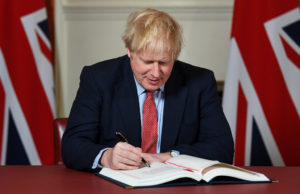
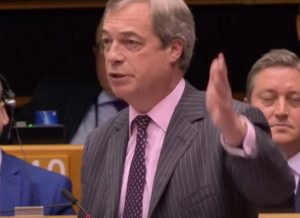
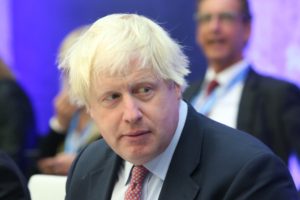
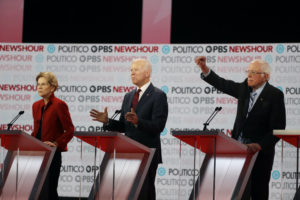
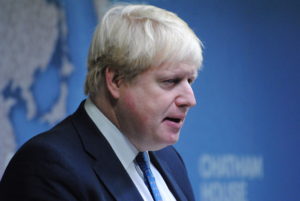
You need to be a supporter to comment.
There are currently no responses to this article.
Be the first to respond.